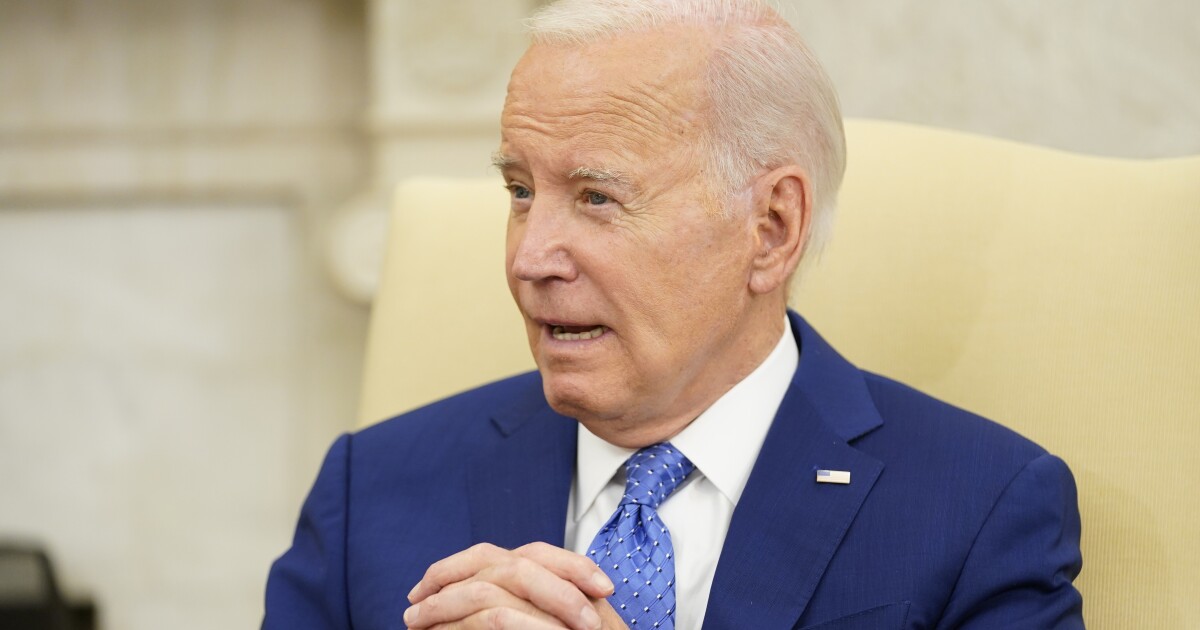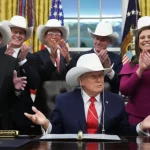

The timing of President Joe Biden‘s new student debt cancellation plan may position Democrats with a beneficial messaging opportunity in the 2024 election.
After the Supreme Court ruled against the Biden administration’s initial student debt cancellation scheme last week, Biden vowed to pursue a similar effort using a different law as the authority.
HOW THE SUPREME COURT COULD NEXT REIN IN THE BIDEN ADMINISTRATION
The basis for the new attempt is the Higher Education Act of 1965, which gives the secretary of education the power to “compromise, waive, or release any right, title, claim, lien, or demand, however acquired, including any equity or any right of redemption.”
The initial pledge to cancel $430 billion in student loan debt was based on the Higher Education Relief Opportunities for Students Act of 2003, which gives the education secretary the ability to “waive or modify” loans. Chief Justice John Roberts wrote in his opinion Friday that such an expansive authority would require an explicit act of Congress.
After being dealt a blow at the Supreme Court, and with the 2024 election on the horizon, the Biden administration’s new plan will take longer to enact as it must go through a monthslong rule-making process.
Biden’s announcement of a new plan was met with condemnation from Republicans, including Senate Health, Education, Labor and Pensions Committee ranking member Bill Cassidy (R-LA) and House Education and the Workforce Committee Chairwoman Virginia Foxx (R-NC).
“President Biden’s student loan schemes do not forgive debt but instead transfer it from those who willingly took on the debt onto those who never went to college or sacrificed to pay their student loans,” Cassidy said in a statement, while Foxx added that “taxpayers will be forced to pay for the costliest regulation in our nation’s history.”
According to Adam Kissel, a visiting fellow a the Heritage Foundation’s Center for Education Policy, the second attempt could be a legal risk but has the potential to give Democrats a talking point heading into the election.
The gamble, Kissel explained, is whether to do a small enough regulation to pass judicial review or a massive proposal like the first one that is likely to be defeated in court on similar grounds.
The “balance is getting votes for going big and losing votes over giving borrowers false hope,” Kissel told the Washington Examiner.
A new rule would have to come out by Nov. 1, 2023, to become effective by July 1, 2024. Nov. 1, 2024, just days before the election, is also a deadline to become effective by July 1, 2025.
Either way, Kissel said, Democrats can make the same argument on the campaign trail: “Vote for us so that we can defend this regulation in court.”
“If all you care about is votes, you kind of want it to not take effect until July of 2025 anyway because then you go in as the [student] debt-cutting president,” he continued.
Both dates would also not give the courts enough time to scrutinize the new plan before Election Day, assuming Republicans pursue a challenge as they did in the initial attempt.
Regulations could play into Republicans’ hands as well, so long as the party messages it properly, Kissel said.
“Citizens are motivated by a sense of injustice, and student loan forgiveness is extremely unjust to people who didn’t go to college and are taxpayers, people who earned their scholarship, and people who paid off their debt already,” Kissel said.
CLICK HERE TO READ MORE FROM THE WASHINGTON EXAMINER
If the new plan is expansive, it likely won’t survive a court challenge since that provision of the Higher Education Act is aimed at loan forgiveness under unique and individual circumstances, like national emergencies or if a college succumbs to fraud charges, Kissel explained.
“When you look at the Higher Education Act authority, it doesn’t automatically mean that the secretary can waive all of the student loans,” he explained. “It can’t mean that, just like if you said the IRS commissioner has the authority to waive taxes. It would be ludicrous to imagine a plenary power.”





